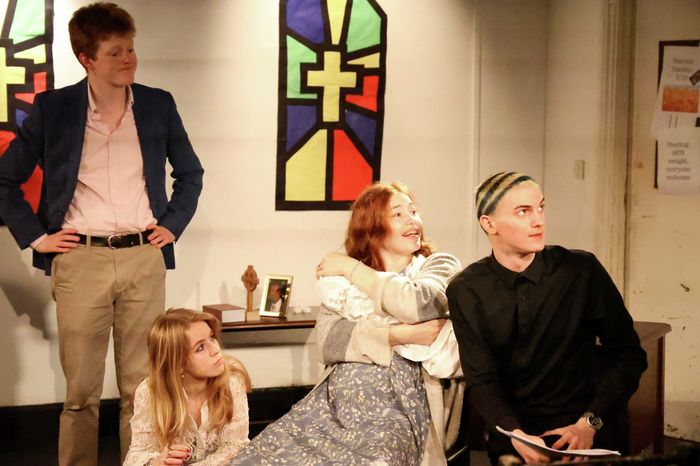The lost and sacred art of script editing
Lily Butler argues that an extra pair of eyes really does make all the difference to putting the final touches on your script

If anything ever happened to Google Docs, both my degree and my life more generally would be in shambles. I have two accounts that roughly divide my two duties – one for academics and one for my own writing. Actually, to be more precise, I have a lot of other people’s writing in there too. I’d like to see myself as discerning (some people would just describe how loathe I am to say that I like something, but discerning will do) and so I’ve taken up a number of script editing jobs within Cambridge Theatre. Either by accident or out of a desire to have my name attached to a stellar script, I think the role holds a lot of value – especially as I look towards writing my own material.
“I’ll be honest and say that most of my script editing jobs have sort of just happened”
I’ll be honest and say that most of my script editing jobs have sort of just happened. Considering that you can technically receive the credit of script editor from merely tweaking a friend’s work here and there (I probably could’ve wrangled a few more credits if I’d been desperate enough), it doesn’t necessarily have the grandeur that other theatrical roles have. However, as time passes, I’m realising more and more how integral it is. Script editors are essentially just more pairs of eyes testing whether a writer’s material works – something that is especially useful for genres like comedy, where an audience’s response is so unpredictable. I’ve been enjoying script editing here just to have a say in shows that I can’t commit as much time to, and also to refine my editorial eye. Helping with the script for Emma in Lent last year has helped me pinpoint exactly how to word a joke in order for it to land with the audience, for example.
“I’m now very firmly of the opinion that writers make their work more collaborative if they aim to put it to an audience”
From what I can tell, many writers don’t necessarily seek out editors for their work. As a self-proclaimed writer myself, it is most likely due to an understandable urge to keep your words close to your chest. Yet after writing my entry to this term’s Smorgasbord in about 2 hours and then quickly becoming too swamped with my own hellish personal life to change the jokes that were only ever there as placeholders for something better, I appreciate having a team of people to believe in and then improve your work more than ever. I’m now very firmly of the opinion that writers make their work more collaborative if they aim to put it to an audience. A group of five extra editors can be microcosmic of your wider audience and therefore put you in a better position to earn that applause you so desperately crave.
The theatre is an inherently collaborative and communal experience – therefore its production should seek to involve as many people as possible. From assistant directing A Comedy About a Priest this term, I know that comedic scripts especially utilise script editors without meaning to – the show feels more fun because of the cast’s freedom to ask “Would it be funnier if…?”. Being part of the script’s creation makes watching the final production uniquely exciting – you get the immense satisfaction of hearing a line being delivered and thinking “Ha, that line’s mine!”.
 Comment / Plastic pubs: the problem with Cambridge alehouses 5 January 2026
Comment / Plastic pubs: the problem with Cambridge alehouses 5 January 2026 News / Cambridge businesses concerned infrastructure delays will hurt growth5 January 2026
News / Cambridge businesses concerned infrastructure delays will hurt growth5 January 2026 News / Cambridge academics stand out in King’s 2026 Honours List2 January 2026
News / Cambridge academics stand out in King’s 2026 Honours List2 January 2026 News / AstraZeneca sues for £32 million over faulty construction at Cambridge Campus31 December 2025
News / AstraZeneca sues for £32 million over faulty construction at Cambridge Campus31 December 2025 Interviews / You don’t need to peak at Cambridge, says Robin Harding31 December 2025
Interviews / You don’t need to peak at Cambridge, says Robin Harding31 December 2025










